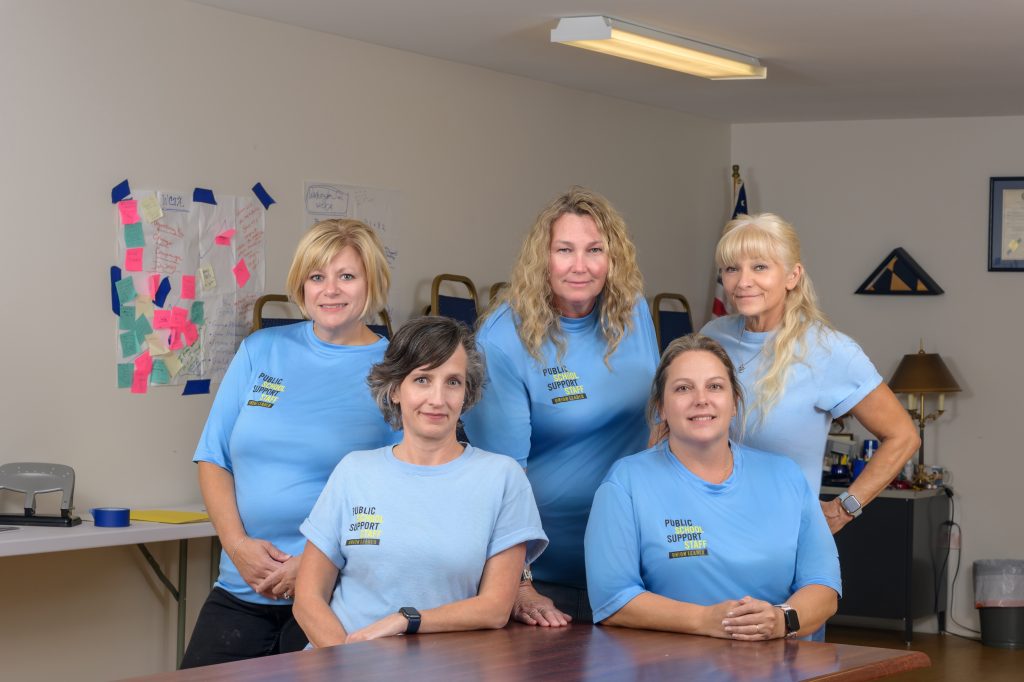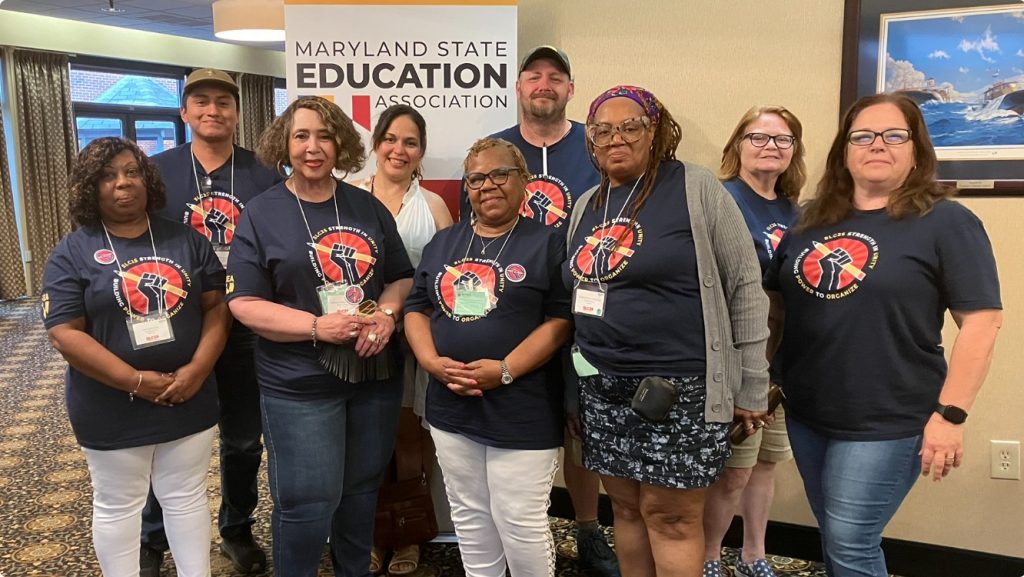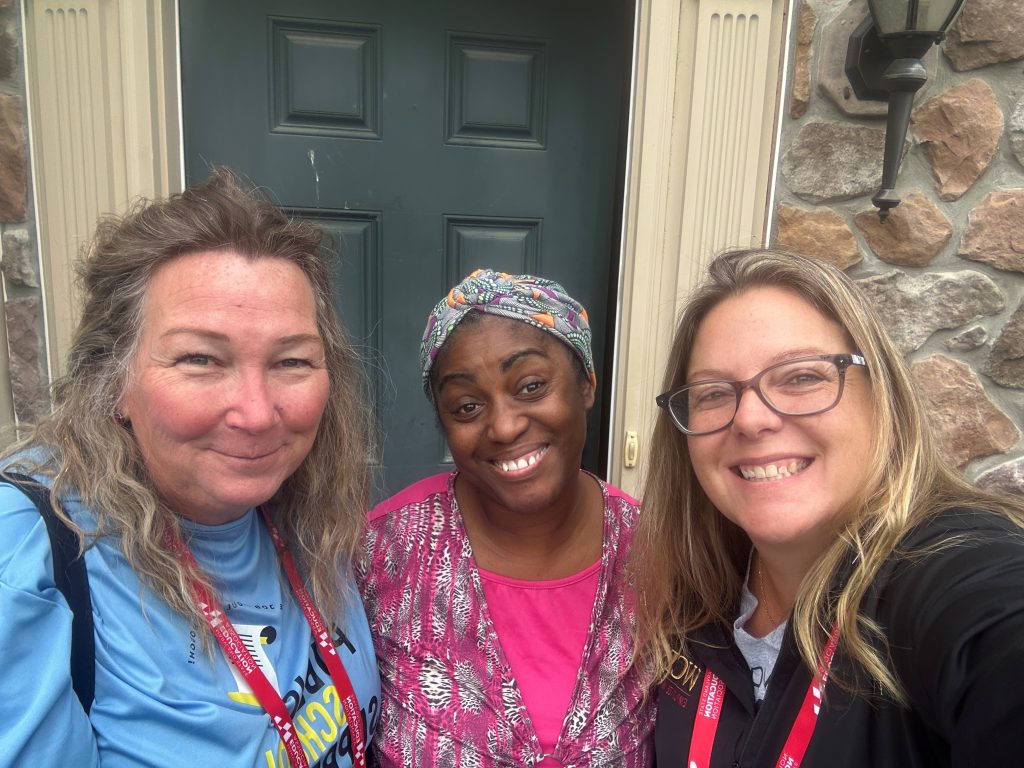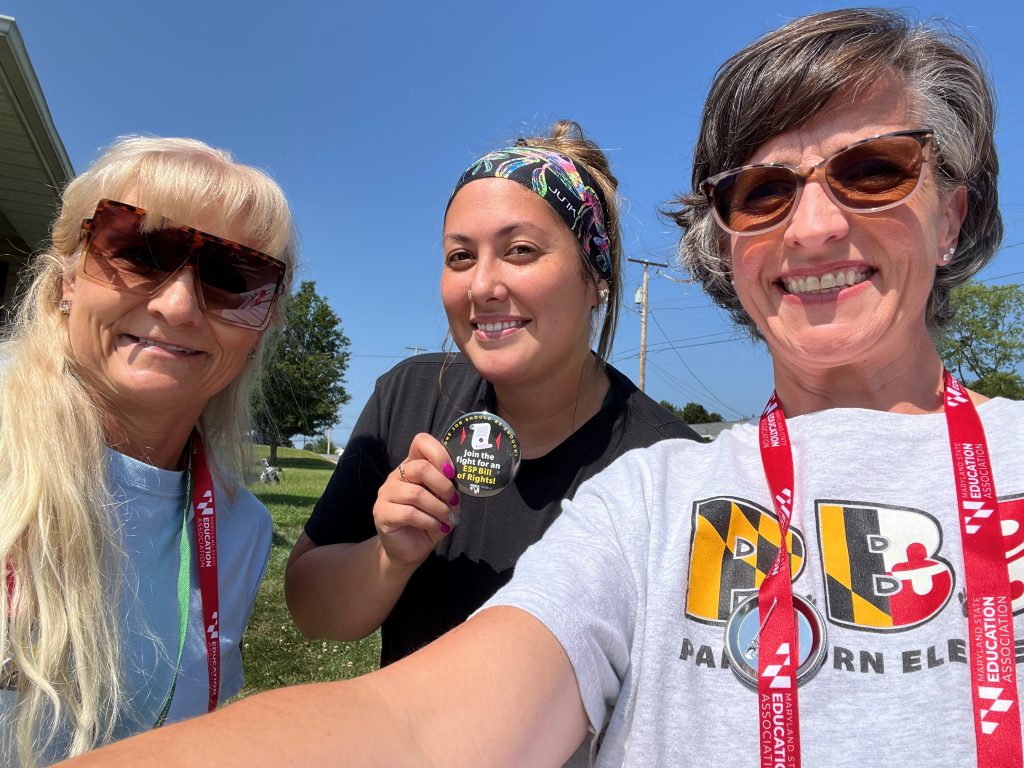MSEA’s Summer Organizing Campaign
Building Leaders, Building Power, Building a Stronger Union


Ask one of the official MSEA ESP Summer Organizers what the three most important things they learned about during their eight weeks of door-to-door canvassing with the ESP Bill of Rights and it will no doubt mirror the thoughts of Kathy O’Reilly, a year-round organizer for the Washington County Educational Support Personnel (WCESP) local union:
“The union is us. The ‘union’ is not some outside entity that exists to help people—it is the members themselves. Our power comes from our collective involvement and action.”
“Inspiration matters. It’s important to inspire and encourage other members, because when people see their colleagues engaged and passionate, they’re more likely to get involved themselves.”
“Strength comes from numbers. The more members we have, the stronger our voice becomes at the bargaining table. Majority membership is what gives us real leverage to win better wages, safer workplaces, and fair treatment.”
Kathy, with fellow WCESP organizers Ashley Godles, Amy Kerarise, Jaqueline Shupe, Rhonda Ramsey, and coach Stacey Albrecht (Harford County) of the Western Maryland campaign, are among 33 member organizers, including three experienced coaches, who canvassed door to door in sweltering heat. In all, these new and veteran union organizers knocked on more than 9,000 doors in targeted support staff locals using the ESP Bill of Rights to define 10 issues of wages, safety, job security, union rights, and more to engage members to fight for better contracts for ESPs in every job category.
Join the ESP Bill of Rights campaign for better contracts, better pay, safer jobs, and more respect!

Organizers walked neighborhoods in central Maryland in Anne Arundel, Baltimore, and Harford counties; on the Eastern Shore in Dorchester, Kent, Queen Anne’s, Somerset, Talbot, Wicomico, and Worcester counties; in Southern Maryland in Calvert and St. Mary’s counties; and in Western Maryland in Carroll, Frederick, and Washington counties. They were supported with pre-canvassing training, daily support while in the field. Special weekly guests included MSEA President Paul Lemle, Vice President Nikki Woodward, and labor leaders and experts from unions across the country, including the UC Berkeley Labor Center.

The ESP Bill of Rights campaign is nearly four years old with more than 6,000 member endorsements and year-round organizers in locals across the state.
The goal of the campaign is to use the Bill of Rights as the organizing platform for building membership and union power through one-on-one conversations focusing on shared experiences and concerns about the workplace that build relationships of trust and solidarity. And summer organizing is particularly effective because support staff have such varied hours from one another during the work week— meeting them at their home over the summer break provided the opportunity for longer, more detailed chats than during the workday.

Building Confidence as Organizers Door-by-Door
Organizers had experienced member-coaches who guided them in using messages and materials to open conversations, first by sharing the Bill of Rights and asking which issues were most important to them in their current contract and for lobbying in Annapolis. Most everyone had a story or issue that could be addressed in contract negotiations with a strong negotiations team.
“I realized that the most powerful tool we have is our own stories. When ESP members share their personal experiences— about workload, pay, or the value of our work—it makes the campaign real and relatable,” said Angie Pendry, an organizer from Somerset County. “And listening to colleagues share what they’re going through helped me further understand that the union is about dignity, respect, and making sure our work as ESPs is valued.”
“We’ve started something and I’d like to see it through,” said Rhonda Ramsey. “Some of us started last year by going to buildings where people had never met a union rep. We simply asked, ‘How’s your school year going?’ I want to be a part of developing a strong, active union with members who know we care and are united together.”

“I heard stories of paraprofessionals being asked to take on tasks outside their job descriptions, colleagues being treated as if they were not vital to the running of a school, unsafe working conditions, and even intimidation tactics used to influence behavior,” said Kathy O’Reilly. “On top of that, the reality that a living wage is essential for survival became impossible to ignore.”
While many of those conversations happened at the front door, WCESP organizers signed up new members after stopping at a meal van feeding neighborhood children. “Two school kitchen managers were working in the van and they were so happy to see us. We shared information about the union and met with them the very next day at South Hagerstown High,” said Rhonda Ramsey. “They and several others signed up for a total of eight new kitchen manager members who were simply not aware they could be a part of our union.”

Follow Through: More Conversations, More Leaders, Better Contracts
Since 2022, the year-round ESP Bill of Rights door-to-door campaign has doubled in size. This year, the summer program had 96 applicants eager to learn how to have conversations, sign up new members, and importantly, identify new leaders who may join union work as building reps or members of critical membership or contract negotiations committees. Organizers identified 150 potential new leaders who attended a meeting on September 27 to learn more about union roles and next steps to more union involvement.
In Washington County, summer organizers are primed to continue their work. “Since making our presence known,” said Ashley Godles, “potential members we canvassed are reaching out with membership questions. It’s great to know our conversations meant something. I hope our momentum it stays strong!”
“We’ve started something and I’d like to see it through,” said Rhonda Ramsey. “Some of us started last year by going to buildings where people had never met a union rep. We simply asked, ‘How’s your school year going?’ I want to be a part of developing a strong, active union with members who know we care and are united together.”

